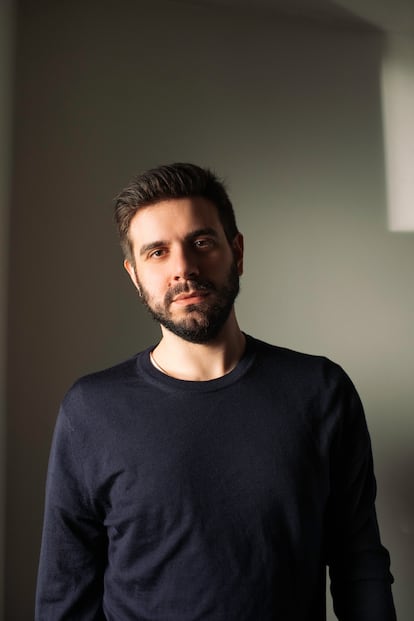In 1969, the Yugoslavian writer Bora Ćosić published My family’s role in the world revolution. He obtained the prestigious NIN award when Titoism was facing a parenthesis between the student protests of 1968 in Belgrade and the Croatian Spring of 1971. The description of a bourgeois family that had fallen into disrepair, through the eyes of a child, during the times of Second World War, it was an innocent and playful portrait, but it left an aftertaste of acid criticism about the absurdity of totalitarianism and the accommodating adjustment to the new ideology. The regime did not ban the book, but it did ban the film version of Bahrudin stone Čengić. It took the censors a couple of years to understand the burlesque and satirical message that inspired the story.
The use of childhood, adolescence, and generational conflict has been frequent in Balkan literature to question and dismantle, from innocence, the perversions and disorders of the adult world. Popularity came to author Ivica Đikić with Columbia Circuswhere the joviality of a merry-go-round represented the tragic antagonism before the descent into hell of the Yugoslav wars of secession (“I will remember that year of 1992 as the only year of high school in which I did not have to retake mathematics. Starting from that we could come to the conclusion that war can also bring something good,” he wrote). The great local crises, mainly economic and moral, have been processed from a child’s perspective, both in biography and also in literature. A street without a name (La Caja Book, 2020), by Kapka Kassabova, is a genealogy from childhood about the long process of reconciliation with the Bulgarian homeland, and Physics of sadness (Fulgencio Pimentel, 2018), by Gueorgui Gospodinov, helps us understand the boredom and lack of stimulation for a child in communist Bulgaria: nothingness as creative suggestion.
Vladimir Arsenijević also won the NIN prize in 1994 with the novel Between the lines (Edhasa,1988), first part of the tetralogy Cloaca Maxima (a vital itinerary through post-Yugoslavia to the present day). Drugs, sex, desertion, debauchery and insurrection take center stage in the work in the face of the inscrutable designs of paternal authoritarianism, social conventions, ethnic conflict and militarism. Asked about the generational conflict, Arsenijević is clear that “the realist literary style during the nineties was undoubtedly the best way to deal with the turbulent and often tragic reality of a country that was falling apart.”
The neat and naked look of a child or the subversion of a teenager fit into an absurd, unintelligible, changing and uncertain social landscape, and allowed the authors to expose social disbelief. Arsenijević continues to elaborate on this: “Nowadays, writers do not have such an acute need for that almost journalistic simultaneity and credibility, so they can try other literary techniques, although somewhat more stratified. It is also noticeable that the authors dominate regional literature, which did not happen in the generation to which I belong.”
Rumena Bužarovska, Ivana Sajko, Olja Savičević Ivančević, Milena Marković, pasando por Lejla Kalamujić, Tanja Stupar Trifunović, Senka Marić, Tea Tulić o Dora Šustić han shook the tree of regional literature last años. Ivana Simić Bodrožić, author de Hotel Tito (Menoscuarto editions, 2023), not only portrays the profile of a girl victimized by the conflict, but also dissects how puberty itself seeks to dissociate from the refugee condition. The protagonist does not stop exploring herself and moving forward, overcoming obstacles with adolescence and hormones in a delirious scenario.
Lana Bastašić, author de milk teeth (Sexto floor, 2022), asked about this, maintains that between both generations “there are not two different worlds, it is the same for everyone.” In his collection of stories starring children, one of the objectives is to “ask ourselves where monsters come from and what our responsibility is in creating them.” The author places the generational conflict in the mirror and the readers only have to come face to face with “negligence” and “abuse” without war or interethnic conflict necessarily mediating everything. The focus on minors gives us readers a peripheral view that frames corrosive patterns that are repeated and inherited from the adult world, as if we were social workers, child psychologists or mere scandalized spectators. Indeed, as Bastašić acknowledges, the new generation “wants to be identified with something more than the breakup of Yugoslavia (…) when all the rubble has been removed.”
It is a process of social introversion, where the Yugoslav demolition has generated a disorder outside, but also inside, which must be elucidated and embraced. Literature by itself does not achieve collective purification, but it does serve to gauge the nature and dimension of social failures. Dino Pešut, who has just been in Spain to promote his novel daddy’s son (Deleste, 2024), believes that “the new writing of the region is less about conflict than about the desire for understanding.” ”I think that with empathy we try to unlock the hidden painful and neuralgic points of intimate and political history,” he says. His work reveals the emotional disconnection between both generations, the absence of intimacy between an ordinary father and his homosexual son in a city like Zagreb, which is close and walkable to us, but where cynicism and fatalism, the fear of exposing the soul, class inequalities and their impact on self-esteem remain as hidden pathologies in the face of the great idealisms and maximalisms that the political elite nurtured during the transition.
Educated in sentimental contention and stunned by the socioeconomic crisis, affections were sacrificed and now is the time for recomposition and finding new formulas for collective healing. Local literature provides a new sensitivity and an encouraging attitude about how a society rebuilds itself from pain and from non-strictly material deficiencies.

